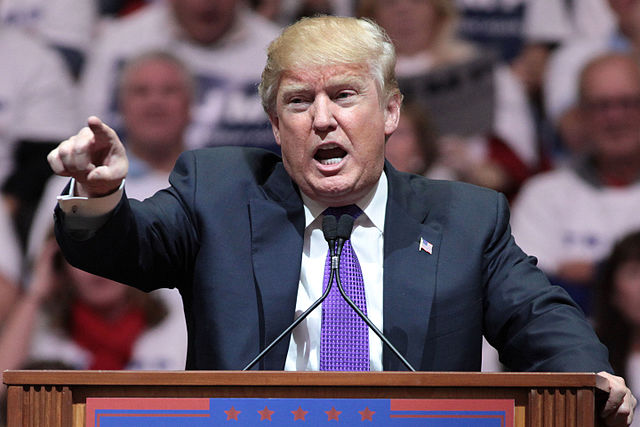
(Scypre.com) – As President-elect Donald Trump builds his new administration following a decisive victory over Vice-President Kamala Harris, he has announced that former U.S. Ambassador to the United Nations Nikki Haley and former Secretary of State Mike Pompeo will not be part of his team. The decision, made public in a social media post, comes amid speculation and divided opinions about their alignment with Trump’s priorities.
“I very much enjoyed and appreciated working with them previously and would like to thank them for their service to our country,” Trump stated, acknowledging their past contributions while signaling a new direction for his administration.
Despite their previous close affiliations with the president, both Haley and Pompeo faced recent criticism from some of Trump’s inner circle. Several close allies have painted them as possible detractors of Trump’s “America First” agenda, alleging they might work to undermine his policies from within. These accusations, mainly from Trump’s most fervent backers, have sparked debate over whether Haley and Pompeo could truly commit to Trump’s vision for the country.
As Trump prepares for his inauguration on January 20, he plans to meet outgoing President Joe Biden in the coming days, carrying forward the ceremonial tradition of a meeting between incoming and outgoing leaders. This meeting represents a historic occasion, as it will bring together two fiercely opposed political figures following a deeply polarizing campaign season.
Despite these differences, Biden appears committed to facilitating a smooth transition. In a statement made Thursday, he remarked, “Campaigns are contests of competing visions… You can’t love your country only when you win. You can’t love your neighbor only when you agree.” His words highlight a willingness to put national unity above political rivalry, a gesture intended to show stability as the country navigates this transition.
This moment recalls a similarly significant visual from 2016, when then-President Barack Obama welcomed Trump to the White House after Trump’s victory over Hillary Clinton. The meeting was marked by unease but symbolized a unified commitment to America’s democratic tradition.
Haley was a strong primary contender against Trump in the crowded Republican field earlier this year, often delivering pointed critiques of the president’s style and decisions. At one point, she even described him as “unhinged,” though she ultimately endorsed him after his primary win. Despite her endorsement, she did not appear on the campaign trail for him, leading to speculation that her support was, at best, lukewarm.
On the other hand, Pompeo—former CIA Director and Secretary of State under Trump—was widely expected to return, with rumors hinting he might be offered the position of Secretary of Defense. Known for his aggressive stance in defending Trump’s policies, especially in foreign affairs, Pompeo was a familiar face in Trump’s previous administration. Yet, some of Trump’s influential advisors, including political strategist Roger Stone, lobbied against both Haley and Pompeo, casting them as potential liabilities.
Stone, in a recent post, warned Trump to avoid “neocons” who might serve as a “fifth column” in the administration. His concerns highlight ongoing divisions within the Trump camp regarding the role of establishment Republicans in supporting Trump’s vision.
Trump’s Presidential Inaugural Committee will be co-chaired by two of his loyal allies: Steve Witkoff, a real estate investor, and Kelly Loeffler, a former U.S. Senator from Georgia. Their involvement is seen as an attempt to secure experienced leadership for the ceremonial aspects of the inauguration while reinforcing Trump’s commitment to supporters from both the political and business sectors.
In the November election, Trump secured a significant win, including all seven key swing states, with a final projected Electoral College count of 312 votes, comfortably above the 270 threshold needed to win. The GOP has also regained control of the Senate, holding at least 52 seats, with final results pending in Arizona and Pennsylvania. Meanwhile, in the House of Representatives, Republicans are nearing a majority, having captured 215 seats.
In the midst of this transition, Harris, whom Trump defeated, will play a formal role in Congress certifying his victory as Vice President. She will preside over the January 6 session, a symbolic date since it marks four years since the Capitol riots during Biden’s certification. The ceremony underscores a key democratic principle: a peaceful transition of power, even amid political tension.
Trump’s decision to exclude Haley and Pompeo reflects his determination to shape a cabinet fully aligned with his agenda. As he prepares for his return to the White House, the Republican Party’s priorities under his leadership remain clear: pursuing an unyielding vision of “America First” policies with an unwavering support base.
As the world watches, the Biden-Trump meeting will be an emblematic reminder of the resilient spirit of American democracy, showcasing its ability to bridge the divides of bitter political rivalries, however momentarily. Trump’s administration is once again poised to set the tone for a new era in American politics, and the next few months will be crucial in shaping the nation’s path forward.